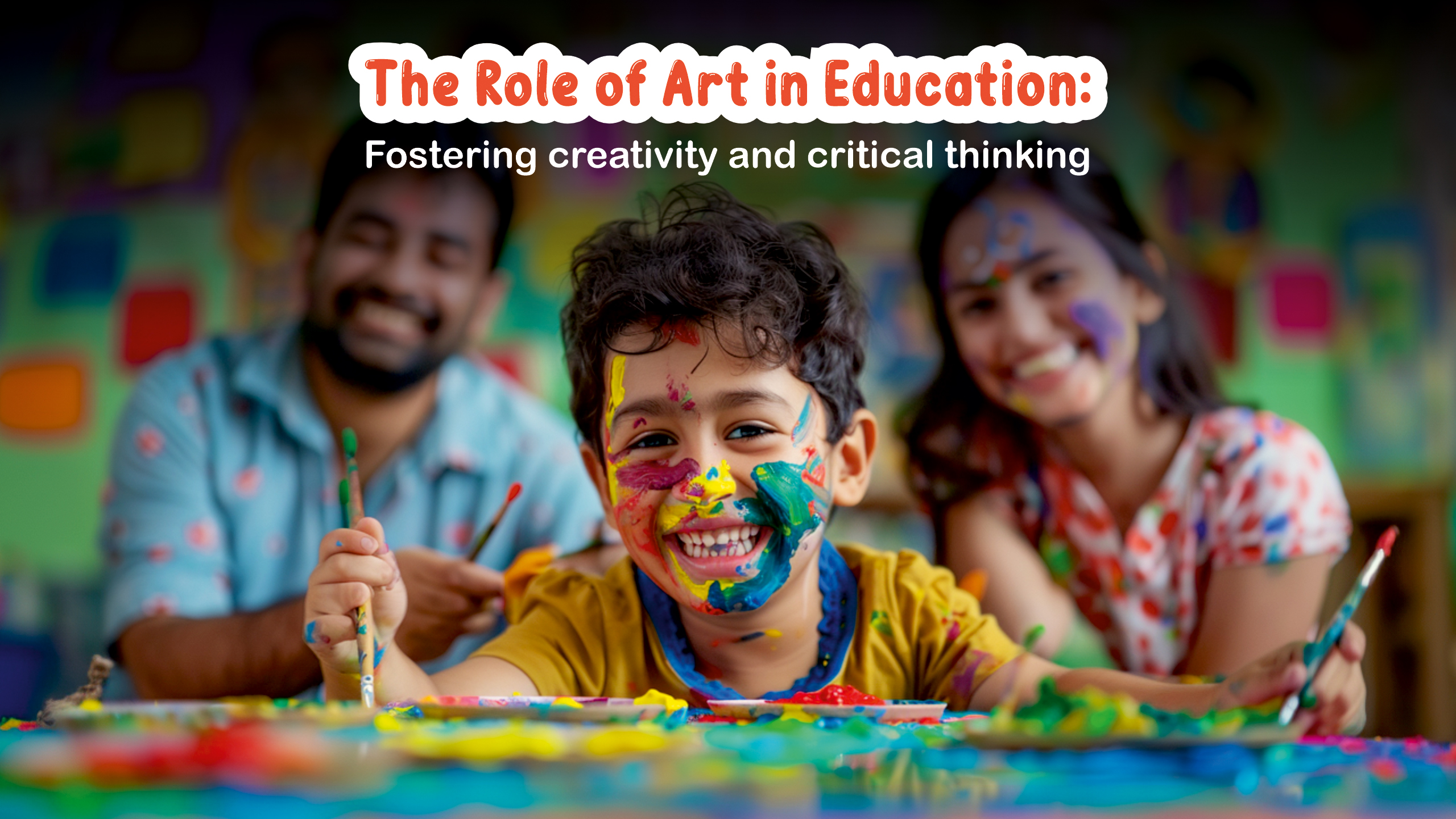Theatrical Improvisation: The Art of Instant Storytelling and Its Relevance in Today’s Society

Understanding Theatrical Improvisation
In a time marked by rapid technological advancements and diverse societal shifts, the capacity to adapt and communicate effectively has never been more critical. Theatrical improvisation, a dynamic and unscripted form of performance, offers unique insights into this necessity. Through spontaneous creativity and unexpected interactions, improvisation serves as a transformative medium for storytelling that resonates with audiences across various backgrounds.
Impactful Benefits of Improvisation
Exploring the benefits of improvisation reveals why it holds such significance in contemporary society, where connection and understanding are paramount.
- Enhancing Communication: Improvisation equips individuals with the tools to articulate thoughts and feelings in real-time. This practice requires quick thinking and adaptability, sharpening both verbal and non-verbal communication skills. For instance, in corporate settings, improv training is utilized to enhance presentations and foster active listening among employees, creating a more dynamic exchange of ideas.
- Building Confidence: Engaging in improvisational activities cultivates a genuine sense of self-assurance. Participants often begin as apprehensive performers but evolve into expressive storytellers, learning to trust their instincts. An example can be found in improv classes at community centers, where individuals from various backgrounds come together to explore vulnerability and build courage through unscripted performances.
- Encouraging Collaboration: The essence of improvisation is collaboration; it thrives on teamwork and shared creativity. Such environments encourage individuals to work together seamlessly, supporting and reacting to one another’s ideas. This is particularly evident in educational settings, where improvisational games are used to foster collaboration among students, enhancing their interpersonal skills and strengthening peer relationships.
Relevance in Today’s Society
As societal challenges such as polarization and misunderstanding become increasingly prevalent, the art of improvisation provides essential lessons for navigating these complexities. It advocates for embracing uncertainty, fostering adaptability, and promoting an open mindset towards the unexpected. In an age filled with rapid changes and differing opinions, these skills are crucial for personal and communal growth.
Through this exploration, we invite readers to appreciate the subtle yet profound influence of theatrical improvisation. By delving into its techniques and real-world applications, we can gain deeper insights into human behavior and the critical importance of communication in building a more connected society. Whether on a stage in New York City or in a classroom in a small town, the principles of improv can inspire meaningful interactions wherever they are applied.
DIVE DEEPER: Click here to discover the art of gardening

The Role of Improvisation in Fostering Creativity
The world we inhabit is brimming with challenges that often demand innovative solutions and fresh perspectives. The discipline of theatrical improvisation serves as a beacon, illuminating pathways for creativity that can translate into various facets of life, from personal interactions to professional endeavors. By engaging in improvisation, individuals embrace the idea that every moment holds the potential for creativity, allowing them to tap into their innate storytelling abilities.
Central to the practice of improvisation is the concept of spontaneity. This art form encourages participants to seize the moment, fostering an environment where participants feel free to explore unconventional ideas without fear of judgment. The improvisational skills honed in these experiences extend beyond the stage, impacting everyday life in significant ways. The following are key areas where improvisation cultivates creativity:
- Problem-Solving: Improv teaches individuals to think on their feet and approach problems with an open mind. By participating in unscripted scenarios, one learns to devise innovative solutions quickly. This skill is invaluable in various settings, particularly within the corporate world, where unpredictable challenges surface regularly.
- Flexibility in Thinking: Engaging in improvisation sharpens mental flexibility—a crucial trait for navigating today’s rapidly changing landscape. Whether in discussions or brainstorming sessions, individuals who practice improv can pivot their thinking and adapt ideas on the fly, leading to richer conversations and collaborative outcomes.
- Inspiring Playfulness: The essence of improv lies in its playful nature. When individuals allow themselves to explore boundaries and indulge in creativity, they ignite their imaginative potential. This playful mindset promotes not only individual creativity but also cultivates a dynamic atmosphere essential for innovative teamwork.
Improvisation as a Tool for Emotional Intelligence
The capacity to connect genuinely with others is paramount in today’s multifaceted society, where empathy often plays a crucial role in overcoming divisions. The practice of theatrical improvisation enhances emotional intelligence by teaching participants to be present, attuned to both their emotions and those of others. Key components of this transformative experience include:
- Active Listening: To participate authentically in improv, one must listen intently to fellow performers. This skill extrapolates to real-life interactions, fostering stronger relationships built on understanding and validation.
- Empathy Development: Improv requires actors to step into the shoes of various characters, promoting an understanding of different perspectives. This facilitates greater compassion in everyday interactions, serving as a reminder that everyone carries their own narrative.
- Conflict Resolution: The ability to confront conflict in a constructive manner is crucial in both personal and professional relationships. Improv teaches individuals to address misunderstandings openly, transforming potential discord into opportunities for connection.
As we delve deeper into the world of theatrical improvisation, it becomes evident that its benefits extend beyond the realm of performance. By fostering creativity and emotional intelligence, improvisation emerges as a critical tool for individuals seeking to navigate the complexities of modern life, offering insights that resonate far beyond the stage.
The Influence of Theatrical Improvisation on Communication Skills
Theatrical improvisation serves as a powerful tool for enhancing communication skills in everyday life. The essence of improvisation lies in spontaneity and adaptability, encouraging individuals to think quickly on their feet and respond coherently in conversations. This art form breaks down barriers, fostering an environment where participants learn to express themselves effectively while also tuning into the cues and reactions of others. The focus on active listening within improvisation exercises compels participants to engage with their peers, promoting a seamless flow of ideas and thoughts.
Building Empathy Through Role-Reversal Techniques
Another remarkable advantage of theatrical improvisation is its ability to cultivate empathy. Through role-reversal techniques, participants are encouraged to step into someone else’s shoes, feeling their emotions and perspectives. This process not only improves understanding and compassion towards others but also strengthens interpersonal relationships both within personal and professional contexts. In a world where collaboration is increasingly important, such empathic skills can significantly enhance team dynamics.
Theater as a Reflection of Current Events
Theatrical improvisation is also relevant today as it reflects society’s current events and challenges. Improvisational performances can serve as commentary on issues such as social justice, climate change, and political turmoil. This immediacy offers audiences a unique, engaging way to confront complex topics, making them accessible through humor and storytelling. As people witness and participate in these dynamic narratives, they are encouraged to think critically about the world around them.
| Communication Skills | Active Listening and Response |
|---|---|
| Enhanced interpersonal communication | Cultivates effective conversation and exchange of ideas |
| Spontaneity in interactions | Encourages quick thinking and adaptability |
Creative Problem-Solving in Professional Settings
Improvisation transcends personal development and spills over into professional domains. Companies that incorporate improvisation training often witness a positive shift in creative problem-solving abilities among employees. This approach encourages out-of-the-box thinking, allowing teams to explore innovative solutions without the constraints of traditional methods. In fast-paced industries, such flexibility is invaluable, enabling organizations to pivot quickly in response to market demand.
Expanding Cultural Awareness
Lastly, theatrical improvisation plays a significant role in expanding cultural awareness. Often performed in diverse settings, it introduces participants to various forms of storytelling, from different cultures and communities. This cross-cultural exchange enriches participants’ understanding and appreciation of cultural nuances, promoting inclusivity and diversity. By engaging in theatrical improvisation, individuals can appreciate the rich tapestry of human experiences that shape our societies today.
DISCOVER MORE: Click here to learn how art can change lives
The Social Impact of Improvisation on Communication
In an age dominated by digital interactions, where online communication often lacks the nuances of face-to-face engagement, theatrical improvisation serves as a powerful remedy. This spontaneous art form equips individuals with the necessary tools to enhance communication skills, fostering a more connected community. Through the principles of improv, people learn to engage authentically and effectively. As we explore the social impact of improvisation, we uncover several key benefits:
- Building Confidence: Improv encourages individuals to step out of their comfort zones, cultivating self-assurance in their ability to express thoughts and ideas. By participating in improvisational exercises, players learn to trust their instincts, ultimately translating this newfound confidence into their everyday conversations. In settings such as professional meetings or social gatherings, confident communicators are more likely to share valuable insights and generate meaningful interactions.
- Encouraging Collaborative Mindsets: One of the core tenets of improv is the concept of “Yes, and…” which encourages participants to accept and build upon each other’s ideas. This collaborative mindset nurtures an atmosphere of support rather than competition. In workplaces or educational environments, teams that practice these improvisational techniques often find they are more effective at brainstorming innovative solutions, as they cultivate an environment where everyone feels empowered to contribute.
- Enhancing Narrative Skills: At its essence, improvisation is about storytelling. Participants learn to weave together disparate fragments of ideas into cohesive stories. This skill is vital in an era where compelling narratives drive engagement, be it in marketing, education, or interpersonal relationships. Those who master the art of storytelling, particularly through improv, can captivate audiences and foster a deeper connection with their listeners.
Improvisation and Mental Health: The Therapeutic Benefits
Beyond its applications in communication, theatrical improvisation holds therapeutic potential that often goes unrecognized. Mental health professionals are increasingly incorporating improv techniques into therapeutic settings, with several significant benefits emerging:
- Stress Reduction: Engaging in improvisational exercises allows individuals to release pent-up tension, providing a welcome escape from the pressures of daily life. This lighthearted approach fosters joy and laughter—two fundamental elements that contribute to improved mental well-being. Laughter, supported by various studies, is known to release endorphins and reduce stress levels, resulting in a greater sense of calm.
- Breaking Down Barriers: For those grappling with social anxiety or communication challenges, improv serves as a non-threatening platform to practice socialization. The improvisational environment is inherently low-stakes, allowing participants to learn through play. As individuals gradually become comfortable in these interactions, they can build skills that translate into real-world social situations.
- Improving Self-Awareness: Improvisation encourages individuals to explore their emotions and reactions as they navigate unpredictable scenarios. This reflection cultivates greater self-awareness, enabling participants to understand their emotional landscapes better. By examining their instincts and responses, they can develop healthier coping mechanisms and a more profound understanding of their emotional triggers.
As awareness of the benefits of theatrical improvisation continues to grow, more people are turning to this expressive art form. It is becoming increasingly clear that the lessons learned through improv have the potential to foster community, enhance communication, and provide therapeutic avenues for personal growth. In an ever-evolving society, the art of instant storytelling stands as a relevant and vital component of personal and collective development.
DIVE DEEPER: Click here to discover exciting dishes
Conclusion: The Enduring Relevance of Theatrical Improvisation
As we navigate the complexities of modern life, theatrical improvisation emerges as a vital tool for personal and societal growth. Its unique ability to foster authentic communication, creativity, and emotional well-being has profound implications in our fast-paced world. By allowing individuals to engage in a playful exploration of storytelling, improv cultivates skills that extend beyond the stage and into every aspect of our daily interactions.
The transformative power of improvisation is evident in its ability to build confidence and encourage collaboration among individuals, whether in professional environments or personal settings. The mantra of “Yes, and…” not only enhances brainstorming sessions but fosters an inclusive atmosphere where ideas can flourish. This collaborative spirit is crucial for addressing the challenges of disconnection in an increasingly digital society.
Moreover, the therapeutic benefits associated with improvisation underscore its potential as a means of promoting mental health. As more practitioners integrate these techniques into psychotherapy settings, the art form proves to be a vehicle for self-exploration and resilience, helping individuals break down psychological barriers and cultivate self-awareness.
In conclusion, the art of instant storytelling through theatrical improvisation resonates with timeless relevance, offering pathways for connection, creativity, and healing. As society continues to evolve, embracing the principles of improv can lead to a more liberated and harmonious interaction among individuals. For those interested in personal development and community building, diving into the world of theatrical improvisation is an invitation to discover the profound impact of spontaneity, presence, and collaborative storytelling.


